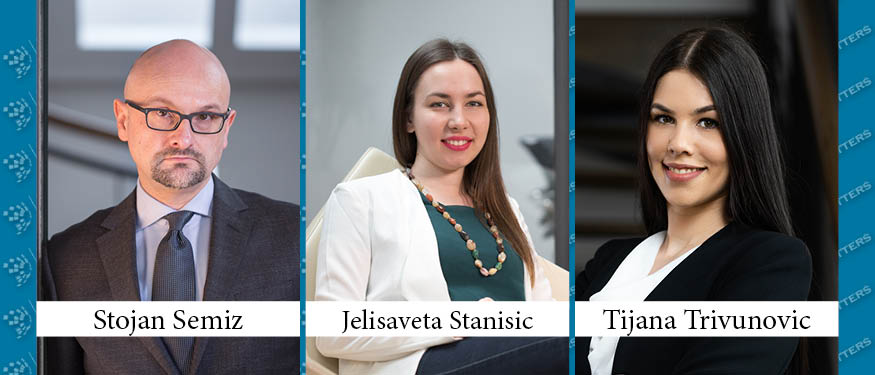CEELM: First, congratulations on winning the DOTY!
Semiz: Thank you! We’d like to thank the whole CEELM team and the jurors voting for it as well.
CEELM: Tell us a bit about the deal and your firm’s role in getting it across the finish line.
Semiz: As you know, the deal was a EUR 155 million construction financing package for the Krivaca wind farm project – a joint venture between the Serbian MK Group and the Slovenian Alfi funds. Zavisin Semiz & Partners was the Serbian law advisor to the lenders, working with Dentons Bucharest, which acted as global counsel.
As in most complex Serbian project financings, our key role as local counsel was to give very pragmatic guidance to both the lenders and global counsel on the often underregulated and sometimes confusing local matters, walking a fine line between crafting a rock-solid financing structure and overcomplicating the process.
CEELM: At what stage did you become involved and what do you believe it was about your firm/team that won you the mandate?
Semiz: We were involved in the project from the outset – we carried out due diligence, assisted with drafting and negotiating the facilities agreement, and drafted and negotiated the local security package.
Erste Group Bank AG, which led the lenders’ club, knew us well from previous transactions and reached out to us to help them navigate this project. Our excellent relationship with Dentons did not hurt, either.
CEELM: What do you believe were the main considerations for which the jurors picked this deal as the winner?
Semiz: This deal qualified on both key metrics. In terms of size, at EUR 155 million, it was probably the largest project financing deal in Serbia in 2022. In terms of novelty, this was the first Serbian renewables project financed on the basis of a private off-take contract.
While I’m reluctant to use the term “ground-breaking” due to indiscriminate overuse, this deal appears to deserve that label – a true groundbreaker in terms of bankable structure.
CEELM: What were the most complex aspects of the deal from a legal perspective? And what were some of the biggest difficulties faced in the process?
Stanisic: As with all complex cross-border lending, we needed to carefully structure several different types of facilities into a single facilities agreement, in line with the sometimes not-so-simple local FX rules. We are happy that our solutions passed the regulator’s review with flying colors.
When it comes to purely local (but by no means small!) challenges, we have been dealing extensively with establishing security over land rights for a large number of land plots owned mostly by third-party individuals. While that is not really cutting-edge legal work, the geographical spread, number of plots, and variety of titles presented a daunting logistical challenge, which ZSP and the borrower’s team handled with aplomb.
CEELM: In contrast, what, in your opinion, went particularly smoothly and what do you believe contributed to it?
Trivunovic: Many years of working on the largest Serbian financings gave us a set of tried-and-tested Serbian-law governed documents, fine-tuned to the latest local market standards – this helped us a lot in efficiently negotiating this often-overlooked but important part of the overall package.
The lenders’ in-house teams were efficient and picked up key points on the fly, thus greatly contributing to the speed and efficiency of negotiations.
And the borrower’s legal counsels (global and local) were also a pleasure to work with – super-efficient, helpful, and attuned to market standards.
CEELM: In your view, what is the significance of this deal for the Serbian market?
Semiz: Renewables investors were looking for evidence that private off-take arrangements are bankable in Serbia – and this deal provided it. One cannot overstate the significance of proof of bankability in this segment which relies heavily on leverage. As such, this transaction paves the way for a greener future by encouraging new fully private investments in the renewables sector.
CEELM: And do you believe we can expect other similar deals in the near future? Why/Why not?
Semiz: Renewables is a white-hot sector these days, so yes, we expect many more deals – and many more mandates for us in this space.
This article was originally published in Issue 10.5 of the CEE Legal Matters Magazine. If you would like to receive a hard copy of the magazine, you can subscribe here.
